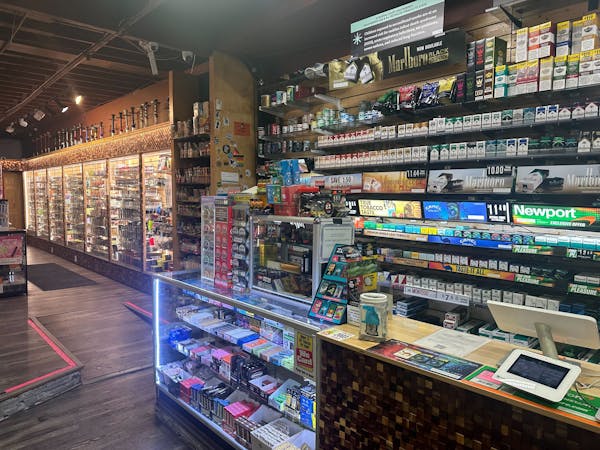A Minneapolis financial adviser who was accused of forging property records to make it look like he had the wherewithal to buy into the Minnesota Wild hockey team responded in court filings this week that his accuser and former business associate actually forged the documents.
Bo Beckman, the owner of the Oxford Private Client Group, filed affidavits in Hennepin County District Court from two former business associates who swear that they heard Minneapolis money manager Trevor Cook talk about forging the property records for the Van Dusen mansion in Minneapolis.
All of the men worked out of the mansion together at one time and promoted a controversial currency trading program managed by Cook through companies called Oxford Global Advisors (OGA) and Oxford Global Partners (OGP).
Gerald Durand of Faribault and Christopher Pettengill of Plymouth said in sworn statements that Cook not only discussed forging the property records, but also talked about transferring title of the Van Dusen mansion to OGA as part of a deal that allowed him to use the firm's trademarks and other proprietary information.
Beckman, Cook, Durand and Pettengill initially had been equal partners in OGA, according to Beckman attorney Andrew Luger. After Durand and Pettengill left the company in the summer of 2008, Pettengill retained a 4 percent interest in OGA and Beckman owned the remainder. Cook and Beckman's wife, Hollie, formed OGP with thoughts that Beckman and Cook would be equal partners, but that never happened, according to Lawrence Shapiro, another of Beckman's attorneys at Greene Espel.
Cook continued the currency trading program under the entity.
Beckman and Cook had decided to part company by July, just before nine Ohio investors filed a lawsuit saying they'd been unable to withdraw the nearly $5 million they had invested in the currency program. Publicity about that suit, filed in U.S. District Court in Minneapolis, prompted a run on the Oxford Group and some associated entities in Burnsville that have "Universal Brokerage" or the initials "UB" in their names.
The investors found they could no longer withdraw their money, and Cook has refused to say publicly what happened to it. Beckman, who not only referred clients to the currency program but also invested his and his family's money in it, filed suit against Cook in Hennepin County, demanding an accounting.
Cook responded by accusing Beckman of stiffing him on a lease for office space in the mansion. And he accused Beckman or his agents of trying to steal the title to the mansion by filing forged property records. He said Beckman was trying to pad his net worth in an effort to win approval from the National Hockey League to buy a small piece of the Minnesota Wild.
In an interview Wednesday, Beckman acknowledged trying to buy into the team, but he denied Cook's other allegations and called them an outrageous distraction.
Beckman said he wanted to buy a small share in the Wild as a way for his wife to get more involved in the team's nonprofit Minnesota Community Foundation. "It was a way for us to give back to the community," said Beckman, who played hockey in high school and college. "We saw it as a unique opportunity to be a part of a great organization."
Shapiro declined to discuss the questions the NHL had raised about Beckman's financial holdings. He called Cook's allegations linking the mansion to the Wild bid "ridiculous."
"They are a sign of desperation by a man who is trying to lash out to protect himself," Shapiro said.
Cook's lawyer, John Thompson of Oberman, Thompson and Segal, responded: "Not surprisingly, OGA never suggests what intellectual property it supposedly gave Trevor [Cook] in exchange for the mansion. That allegation is completely inconsistent with the claim that we hear from everywhere that Trevor was supposedly the architect of this [currency] arbitrage strategy.
"I believe that communications between the NHL and Bo Beckman will show that he represented to the NHL that he owned the mansion before the deed was signed. We will be seeking discovery of those communications," Thompson said in an e-mail.
According to Beckman's court filings this week, which include a number of supporting e-mails and contract documents, Cook had bought the Van Dusen mansion for $2.6 million in June 2007. He agreed to transfer title to OGA in exchange for the use of the firm's trademarks and proprietary information. Briggs and Morgan drew up the agreement for the transaction, which is dated May 12, 2008.
Durand said in a sworn statement that Cook told him "that he personally signed the warranty deed and forged the signature of his wife, Gina Cook, on the warranty deed." Durand said that he had spoken to Cook numerous times about the transfer of the property title and that Cook never complained about it or suggested it wasn't supposed to have taken place.
Pettengill said in his sworn statement that he and Cook discussed the sale of the mansion in exchange for intellectual property before it occurred. Pettengill said he told Cook that his wife might not like the idea if no money changed hands. He said Cook told him that wouldn't matter, because he would just sign her name to the deed. Pettengill said he never heard Cook claim afterward that the transfer took place based on forged signatures.
Dan Browning • 612-673-4493
Yellen says Iran's actions could cause global economic spillovers as White House vows new sanctions
NPR suspends editor who criticized his employer for what he calls an unquestioned liberal worldview

